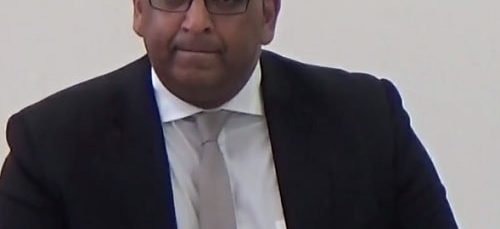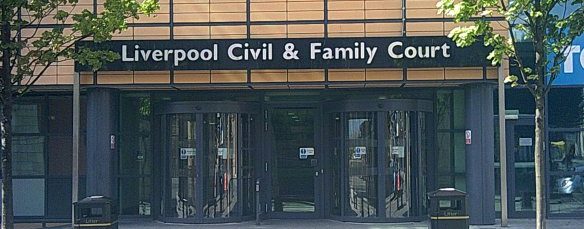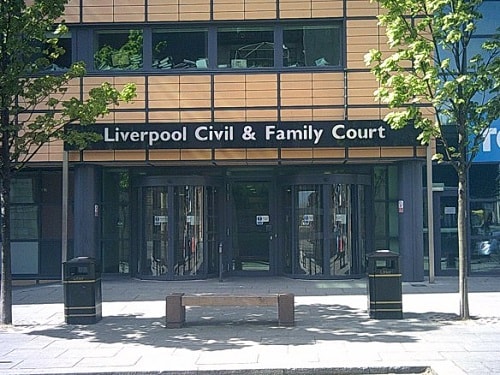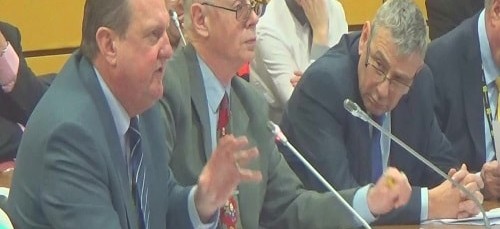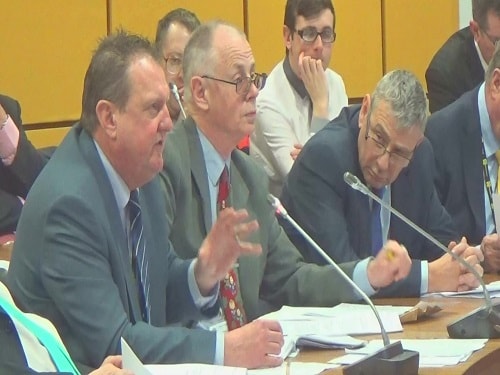Employment Tribunal Day 6 of 10: Cross-examination of Surjit Tour (Part 2)
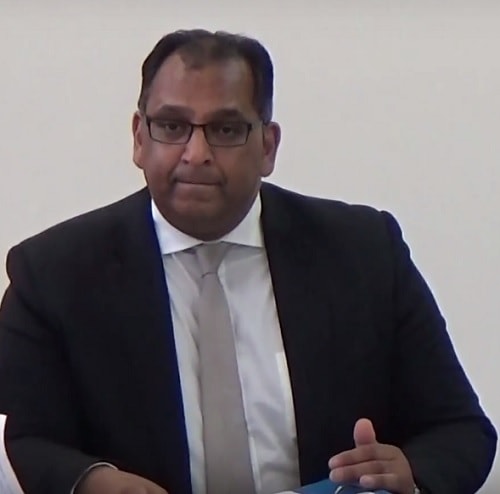
This is a report of an Employment Tribunal hearing I attended, the matter had already been part heard and this was day 6 of 10. As far as I know there are no reporting restrictions. Brief details are below followed by the first part of a report based on my notes.
Venue: Tribunal Room 2, Third Floor, Liverpool Civil and Family Court Hearing Centre, 35 Vernon Street, Liverpool, Merseyside, L2 2BX
Case reference: 2400718/16
Appellant: Mrs A. Mountney
Respondent: Wirral Metropolitan Borough Council
Employment Judge: Judge Robinson
Tribunal Members:
Mr AG Barker
Mrs JE Williams
Clerk: Lynne Quilty
Date: 6.2.2017
Time: 10.00 am
The following is a contemporaneous account of day 6 and continues from Employment Tribunal Day 6 of 10: Cross-examination of Surjit Tour (Part 1).
Mr Mountney referred Mr Tour to page 642 and asked him what was his response to number 6?
EJ Robinson asked to let him known of the provenance of the letter to Alison Mountney dated 12th January and asked for a paragraph?
Mr Mountney referred to answer eight with the response at the bottom. In elections, he referred to the appointment of staff above counter staff. He referred to ability and a named member of staff.
Surjit Tour stated he was incorrect, that staff were required after polls closed at the counting centres on the counting tables. This was a change to counting staff. Moving to the requirement for management approval, he pointed out the named member of staff was a poll clerk.
EJ Robinson asked who was responsible for the appointment of polling clerks? Surjit Tour replied that the appointment of polling clerks was the responsibility of Alison Mountney.
EJ Robinson said that at 10 o’clock the polls close and a poll clerk would be sat at the tables in the polling station?
Surjit Tour answered that a poll clerk would be supervised by a presiding officer, but there would be one or two poll clerks at each polling station.
Mr Mountney said he accepted it for what it is and asked a further question of Mr Tour. Mr Tour answered that if there was an issue with a member of staff employed it was not within the discretion of Alison Mountney and that the responsibility for suitability rested with Kate Robinson.
Mr Mountney asked Mr Tour a question about Kate Robinson to which Mr Tour answered that he didn’t recall Kate Robinson coming to him regarding that individual.
Mr Mountney referred Mr Tour to paragraph 29 of his witness statement and said as it was important he would go back to the first line. A whistleblowing concern had been made in 2015, Mrs Robinson says she told Mr Tour but Mr Tour says he can’t remember. He asked a question of Mr Tour around being made aware by Mrs Robinson.
Mr Tour said he didn’t recall being made aware of the issue at the time, but it had been made clearer in 2015.
Mr Mountney referred to the whistleblowing report and the reports starting at page 649.
Mr Tour asked for a page number? Mr Mountney referred to page 761. Mr Moore suggested it was 771. Mr Mountney confirmed it was 771.
Mr Mountney referred to the bottom of page 770, at the bottom of the page, 3rd line, P1, he asked if Mr Tour agreed to which Mr Tour answered yes.
EJ Robinson interrupted and said it was his fault but asked for a more explicit reference.
Mr Mountney stated page 770, 6.4.9, third line, P1. He stated that it was here that he never dismissed the integrity of the election was an issue. P2 never refers to him and asked how come is says that?
Mr Tour said he did not recall. Mr Mountney coming to Kate Robinson, he asked a further question to which Mr Tour replied Kate Robinson. Mr Mountney asked wouldn’t Mr Tour know?
Mr Tour answered referring to an incident, canvassing and how steps were taken.
Mr Mountney referred to 6.4.5 and at P2, some time after, people agreed Kate Robinson had made a verbal report to P1 about an alleged canvassing fraud, was Mr Tour told?
Mr Tour referred in his answer to internal audit and how the canvassing book had gone to the individual known as P1.
Mr Mountney asked if a report was made? Mr Tour said that he didn’t recall the conversation with Kate Robinson, but that individual therefore says Kate Robinson. Mr Tour answered that he didn’t recall, going on to refer to Bradfield and a canvassing issue.
Mr Mountney asked a question about fraud to which Surjit Tour answered yes. Mr Mountney asked if it was involving public money and he was a solicitor? Mr Tour answered yes. Mr Mountney referred to Mr Tour’s witness statement and matters concerning a polling clerk, he noted these were not issues that concerned fraud and asked a question.
Mr Tour answered that he had seen the context dealing with the issues and that the issues had been addressed. He referred to Mrs Bradfield, he was not belittling the issues, but there were other matters on his mind and his attention and focus had been on those things, he expected it would be dealt with by a manager.
Mr Mountney said he agreed it was, he couldn’t remember where but did it not state Kate Robinson was lying. Therefore it was raised, but Mr Tour had said it was not issue of concern to him. It was not a matter he would expect to be unresolved and pointed out that Mr Tour was the Borough Solicitor.
Mr Tour explained that at the time there was a governance report by Anna Klonowski in early September, the organisation was in turmoil and there were governance issues. In the grand scheme matters prevailing were important, but his attention and focus was on other issues.
Mr Mountney referring to those other issues, said that these election issues might affect the integrity of the elections.
Mr Tour said he was not aware the integrity of the elections was called into question. The issue of Bradfield was how the canvass was conducted as an example.
If you click on any of the buttons below, you’ll be doing me a favour by sharing this article with other people.
